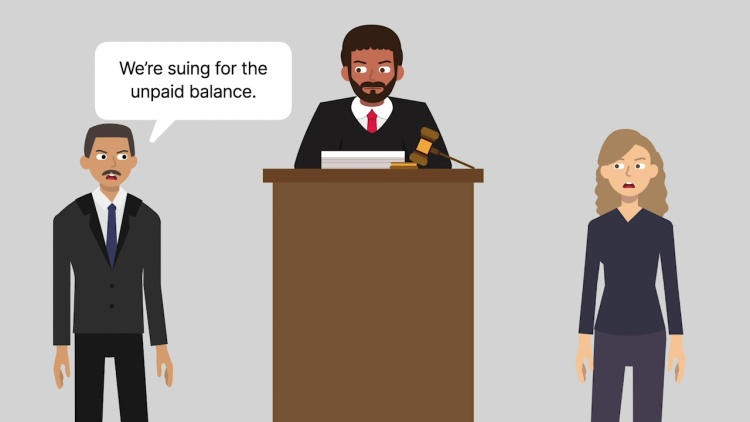First Bank v. Fischer & Frichtel, Inc.
Missouri Supreme Court
364 S.W.3d 216 (2012)

- Written by Rich Walter, JD
Facts
Fischer & Frichtel (F&F) (defendant) was a real estate developer that borrowed over $2.5 million from First Bank (plaintiff) to finance a residential development. When the loan matured, F&F still owed First Bank $1.1 million but chose to default on the loan rather than repay it. First Bank foreclosed on nine unsold lots in the development and sued F&F for the unpaid interest and principal on the loan. First Bank then purchased the lots at the foreclosure sale for $466,000. The difference between the outstanding loan amount and the foreclosure sale price resulted in a deficiency of approximately $667,000 owed by F&F to First Bank. At trial, F&F alleged that the deficiency should be calculated as the difference between the outstanding debt and the fair market value of the foreclosed property at the time of the foreclosure sale, rather than the difference between the outstanding debt and the lower foreclosure sale price. The jury agreed with F&F. The jury found that the fair market value of the foreclosed property was $918,000. The jury thus concluded that the deficiency owed by F&F to First Bank was approximately $215,000 plus interest. First Bank moved for a new trial, arguing that the court's damages instruction to the jury was flawed because it based the deficiency on the fair market value of the lots instead of the amount received at the foreclosure sale. The trial court granted First Bank's motion. F&F appealed to the Missouri Court of Appeals, which transferred the case to the Missouri Supreme Court.
Rule of Law
Issue
Holding and Reasoning (Stith, J.)
Dissent (Teitelman, C.J.)
What to do next…
Here's why 907,000 law students have relied on our case briefs:
- Written by law professors and practitioners, not other law students. 47,100 briefs, keyed to 996 casebooks. Top-notch customer support.
- The right amount of information, includes the facts, issues, rule of law, holding and reasoning, and any concurrences and dissents.
- Access in your classes, works on your mobile and tablet. Massive library of related video lessons and high quality multiple-choice questions.
- Easy to use, uniform format for every case brief. Written in plain English, not in legalese. Our briefs summarize and simplify; they don’t just repeat the court’s language.





